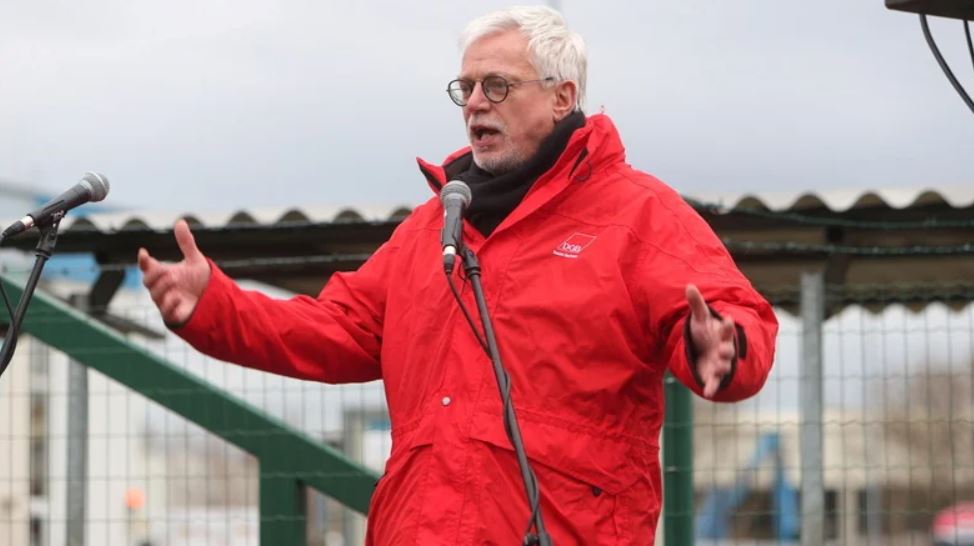By Michael Rothe
Dresden. "Security in transition - choose solutions!" That is the message of the DGB Saxony for the state elections in the fall. On Wednesday, the trade union federation presented its touchstones for politics, including some unfulfilled ones from 2019.
There is rumbling in the country, says DGB state head Markus Schlimbach, accompanied by the honking of farmers' horns on Dresden's streets. He talks about the many strikes and wage disputes that are still smouldering. The trade unionist calls the main demand "good work in the Free State" with equally good pay. "We need stronger safety nets in the world of work": collective agreements that regulate wages, working hours and vacations, says Schlimbach. In Saxony, only every 6th company is bound by collective agreements.
The Free State could promote this with a procurement law. However, Saxony's trade union boss is "only conditionally optimistic" that the amendment set out in the coalition agreement will be implemented. "If not, the question arises as to whether the CDU can be faithful to the agreement at all," says Schlimbach.
His deputy Daniela Kolbe advocates an election campaign with factual politics instead of populism. She names further points on which the DGB wants to measure the parties: joint shaping of transformation, energy and mobility transition, legal entitlement to five days of education, public services, including in rural areas - and co-determination.
"Progress must be bitterly fought for in Saxony"
Where there are works councils, employees are more inclined towards democracy than where decisions are made over their heads, she says and calls for a transformation advisory board made up of trade unions, social partners and ministries on the climate crisis, globalization and digitalization. There should be a sense that there is a plan. "It's still just a matter of taking baby steps, every step forward in Saxony has to be fought for bitterly."
Saxony's debt brake is a brake on investment, complains Schlimbach. The government looks to Berlin and Brussels, but is itself blank when it comes to investing in the future. Reforming the brake is the task of the next government. Schlimbach told SZ that the DGB does not recommend voting as it did years ago.
His look back is sobering: only a fraction of the ten DGB demands from the last election have been met. The standstill during the pandemic hardly provides any mitigating circumstances. "That's why I give the government an overall grade of 4," he says. For many, that borders on "at risk of transfer".








